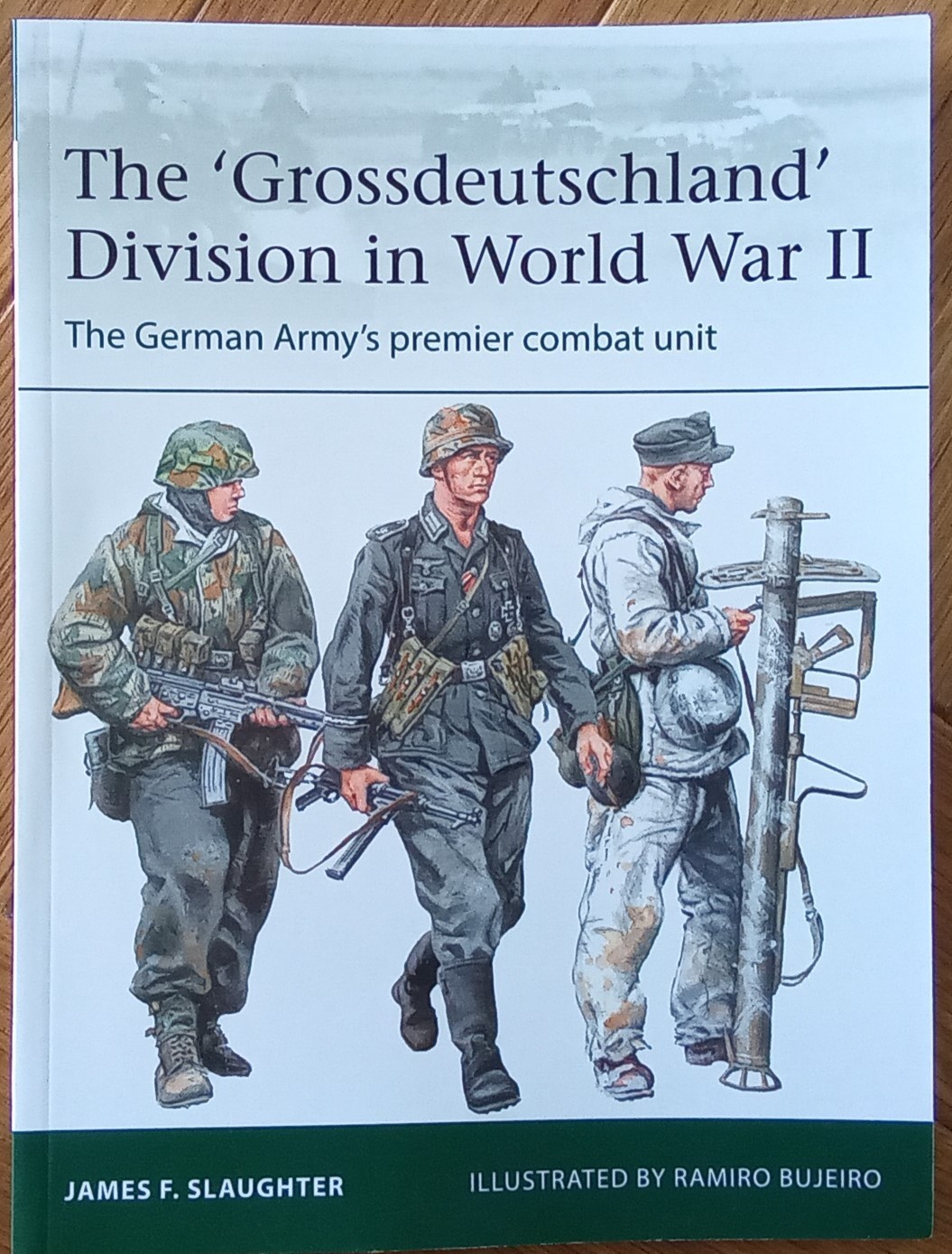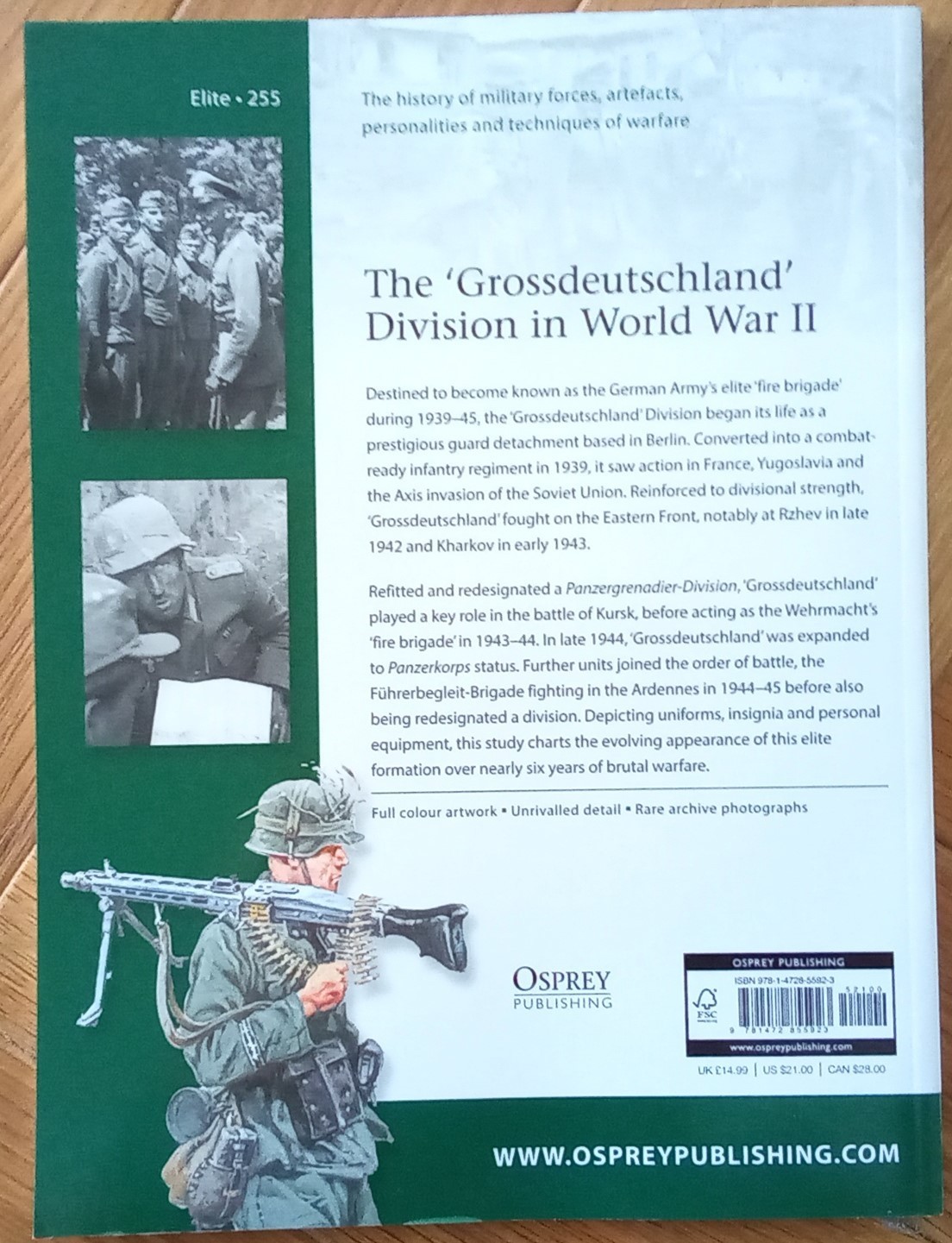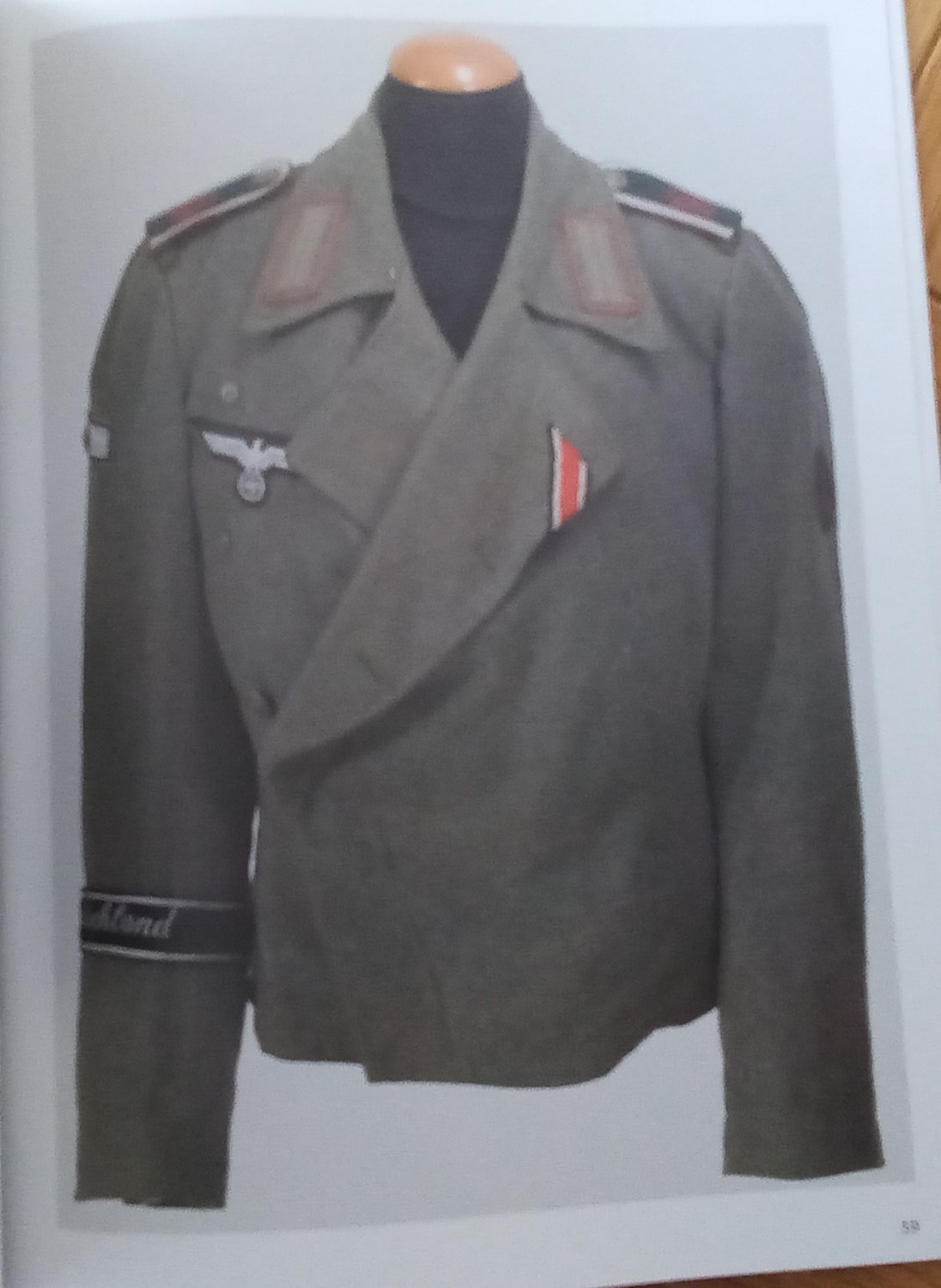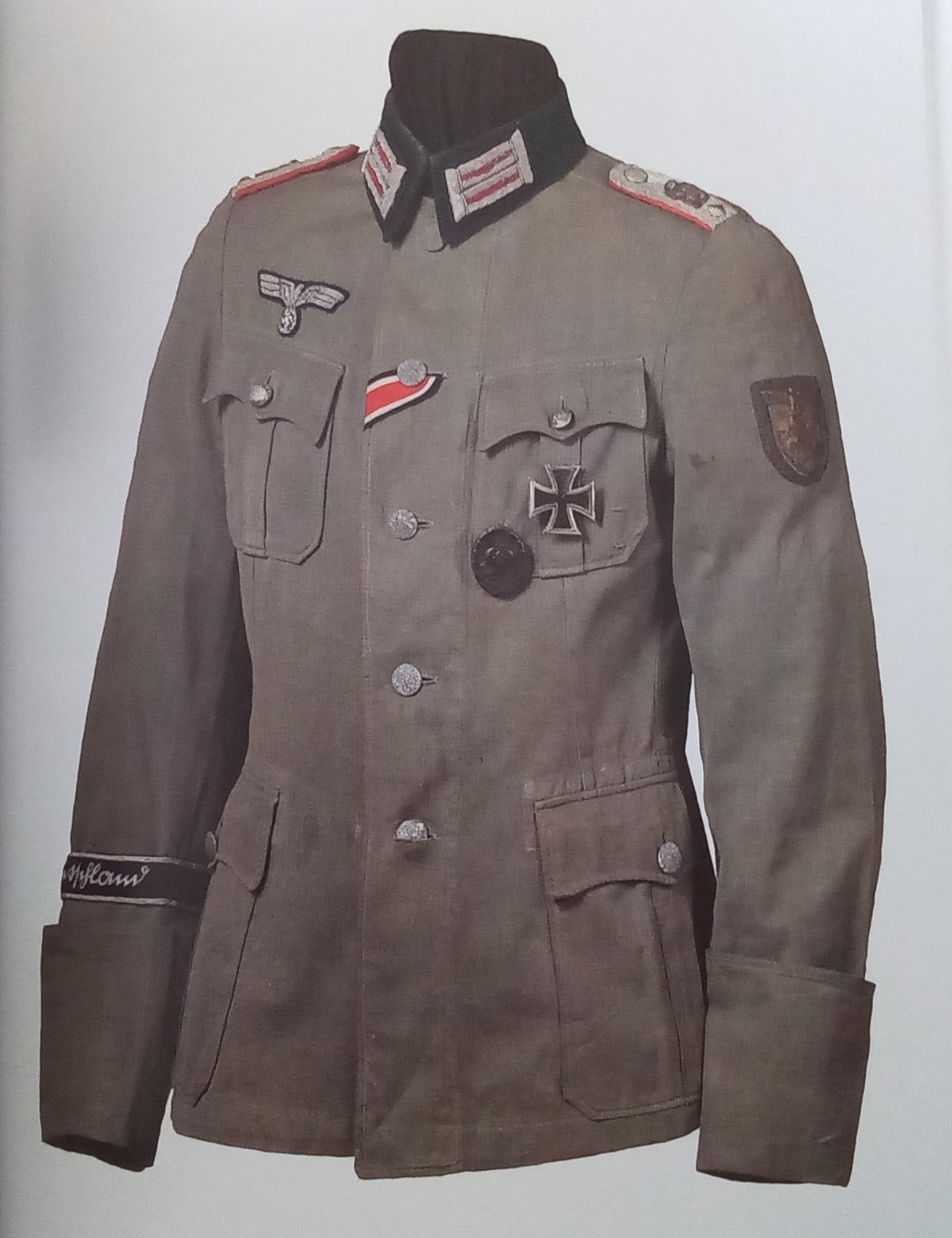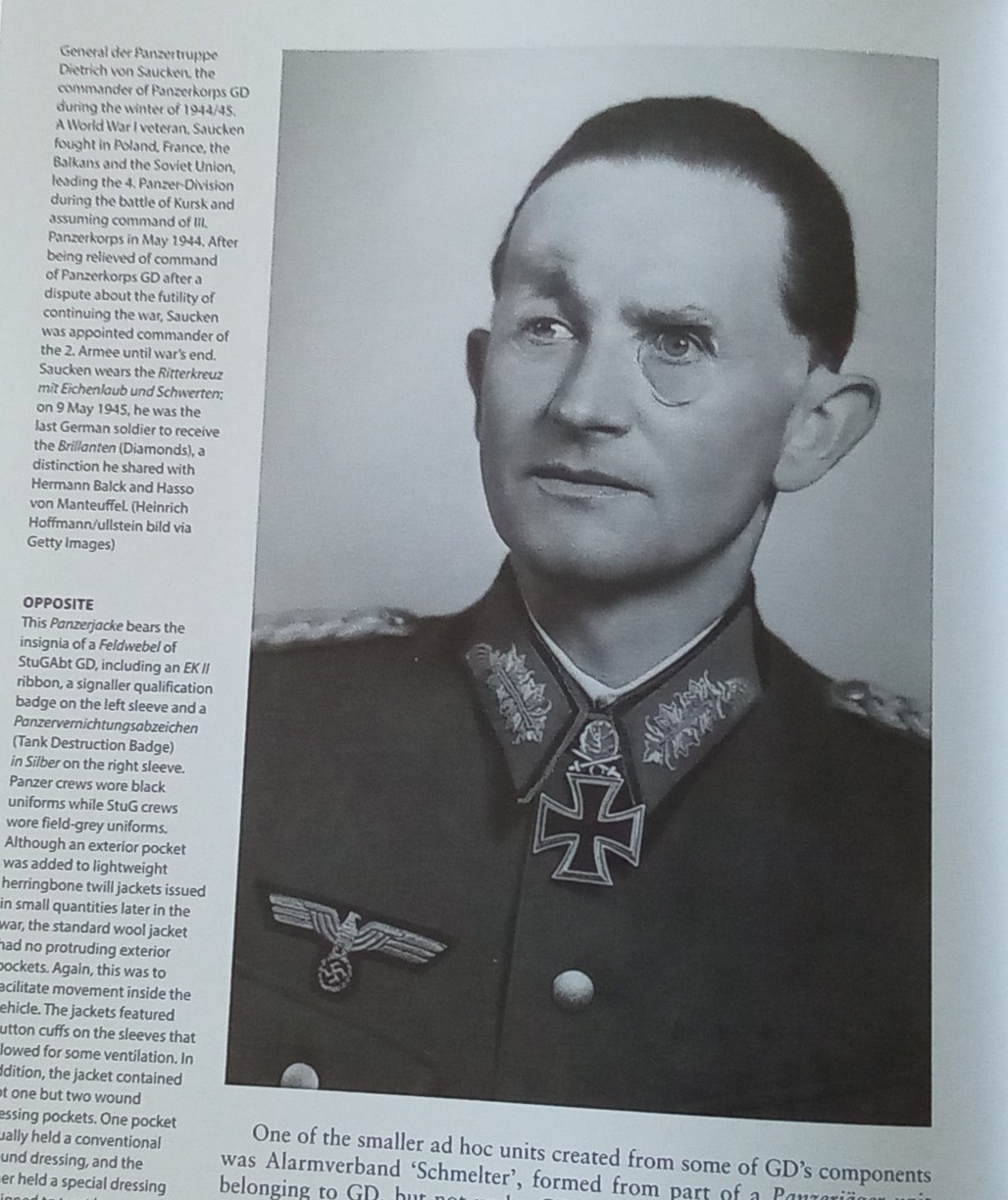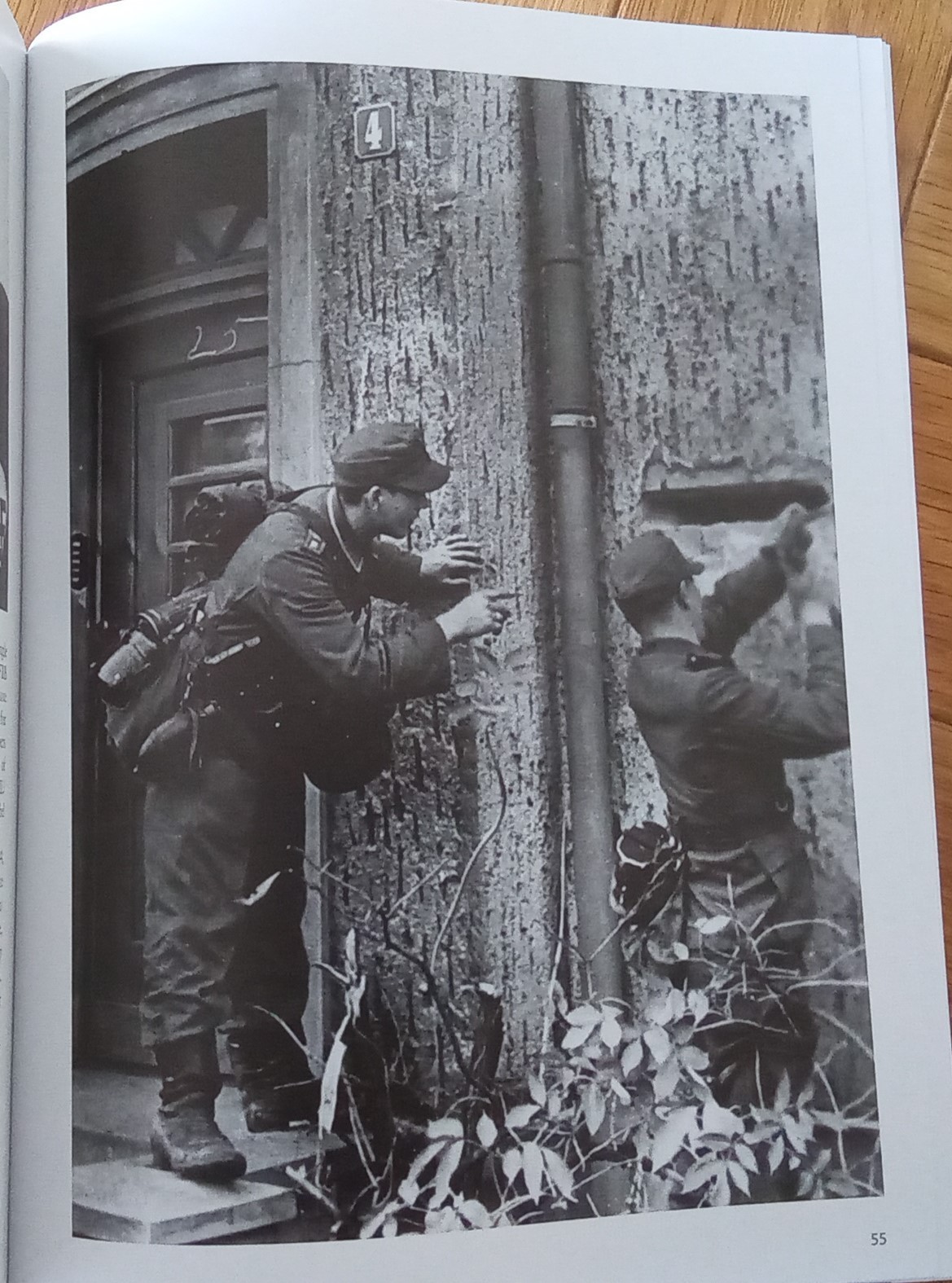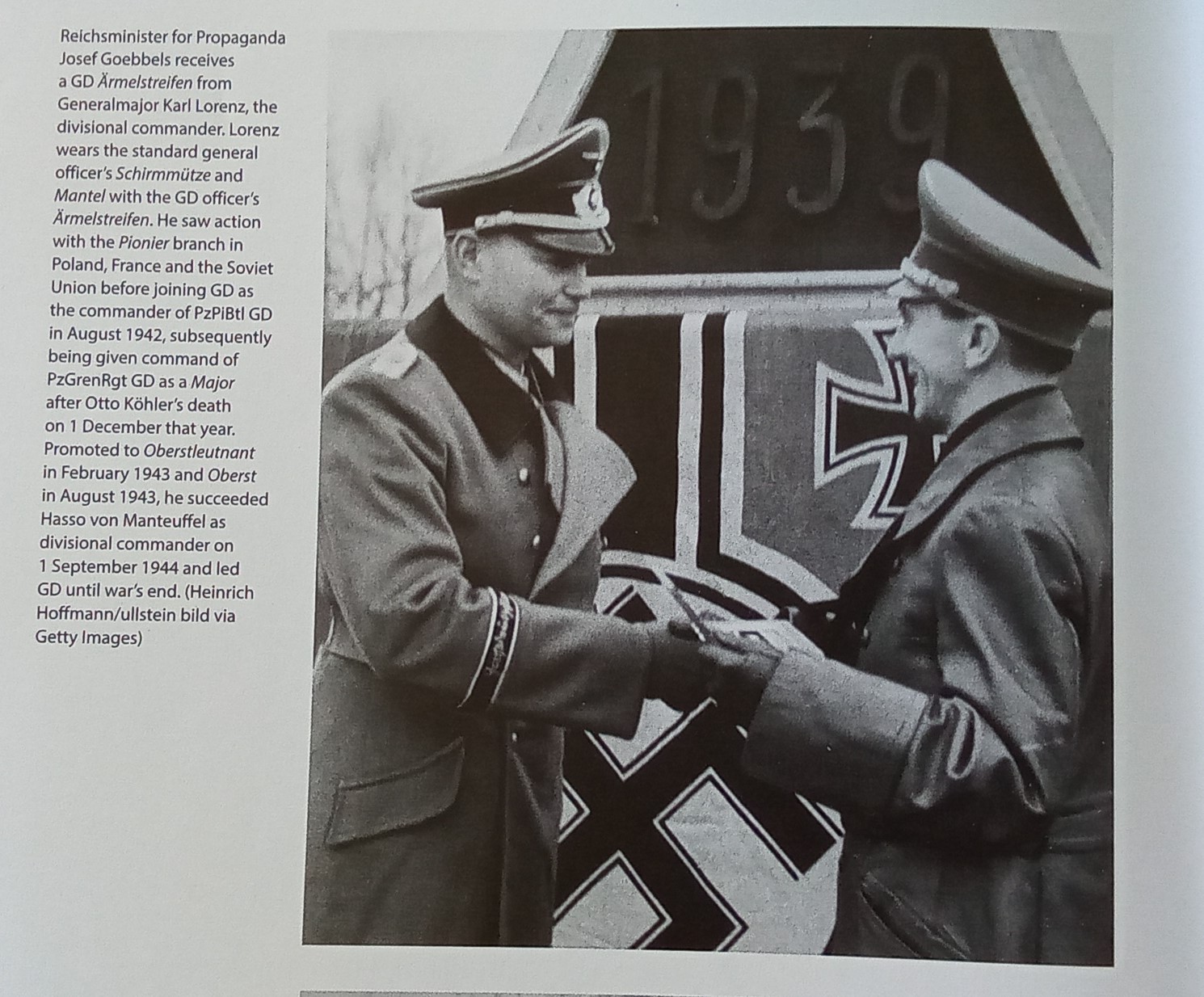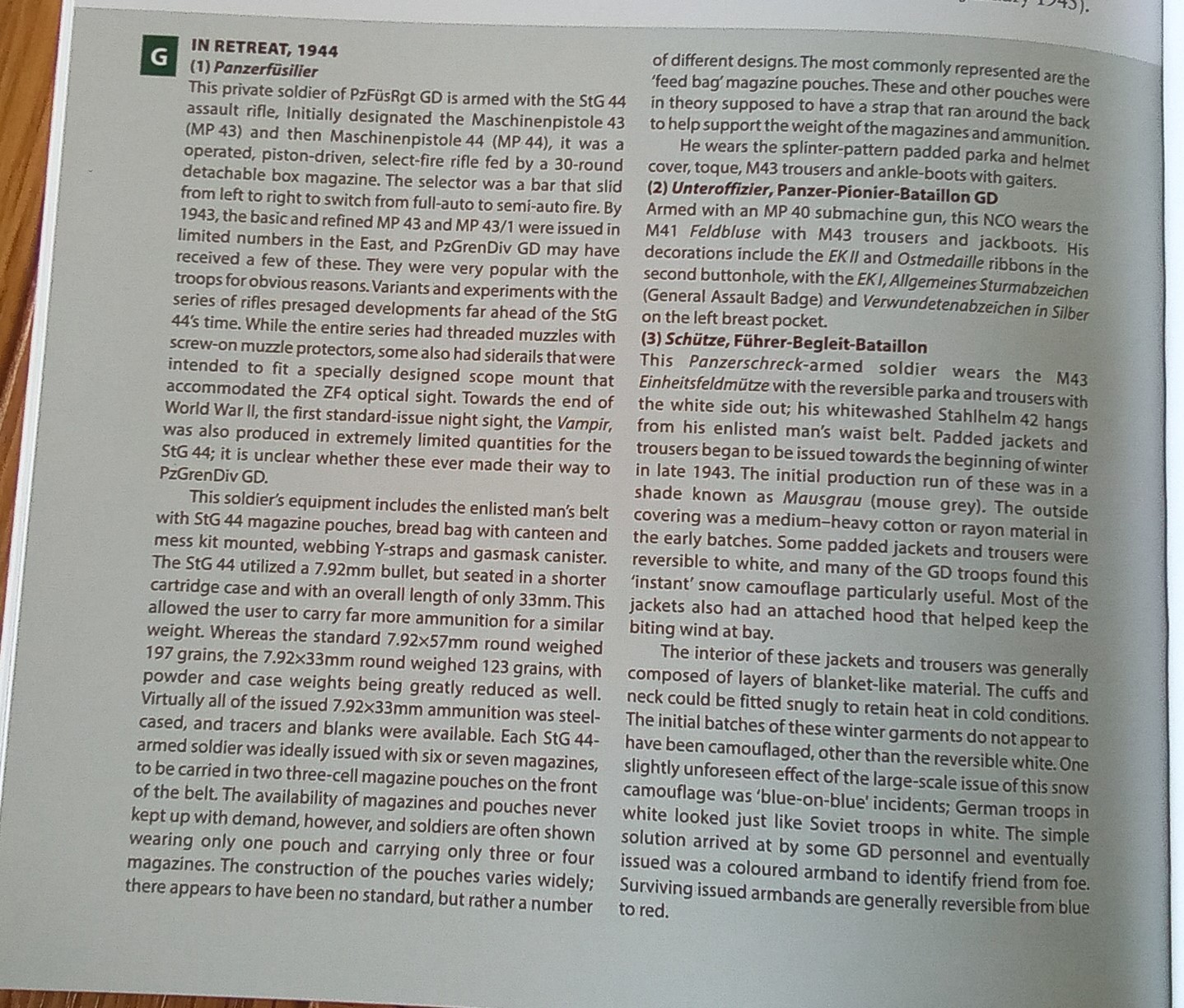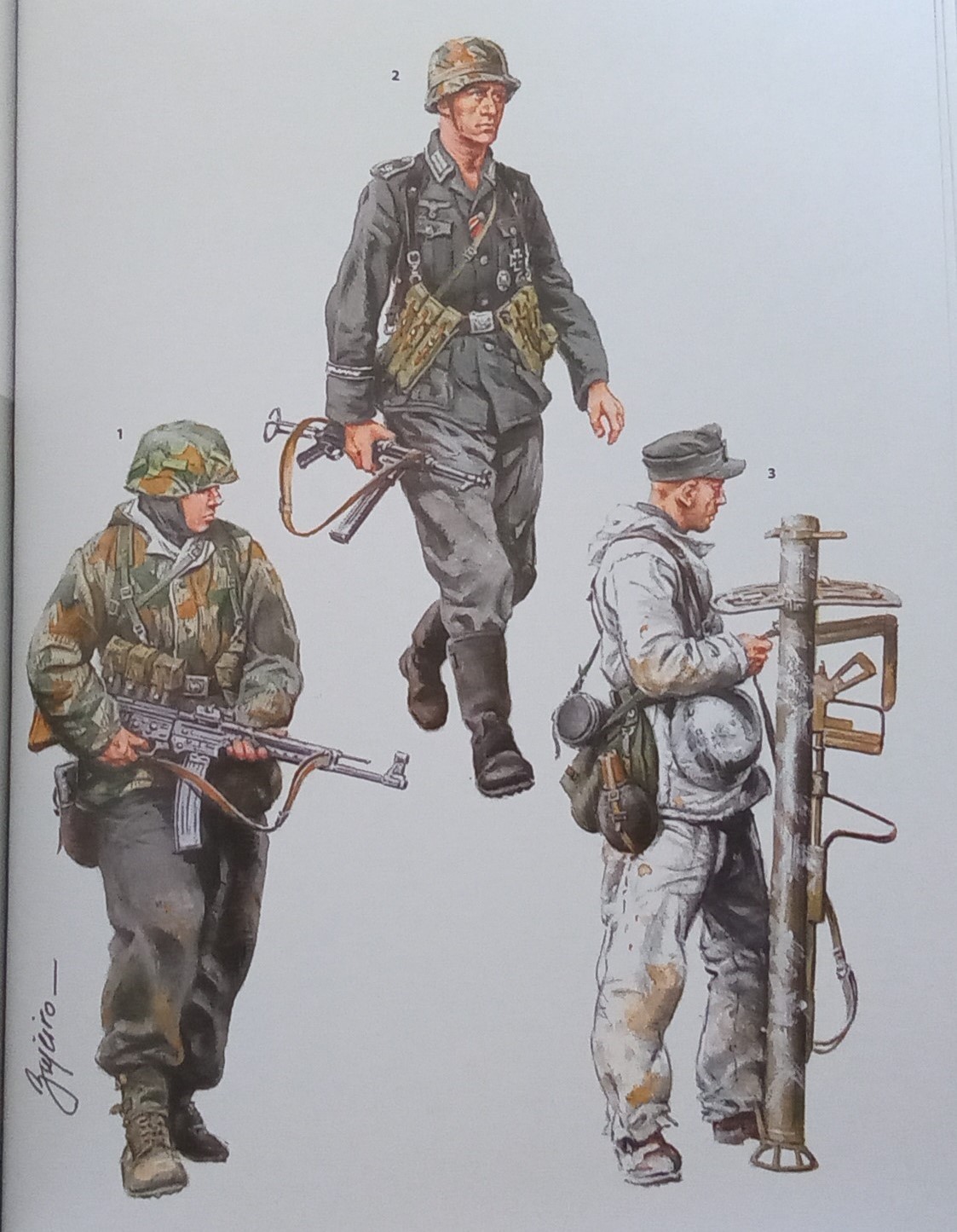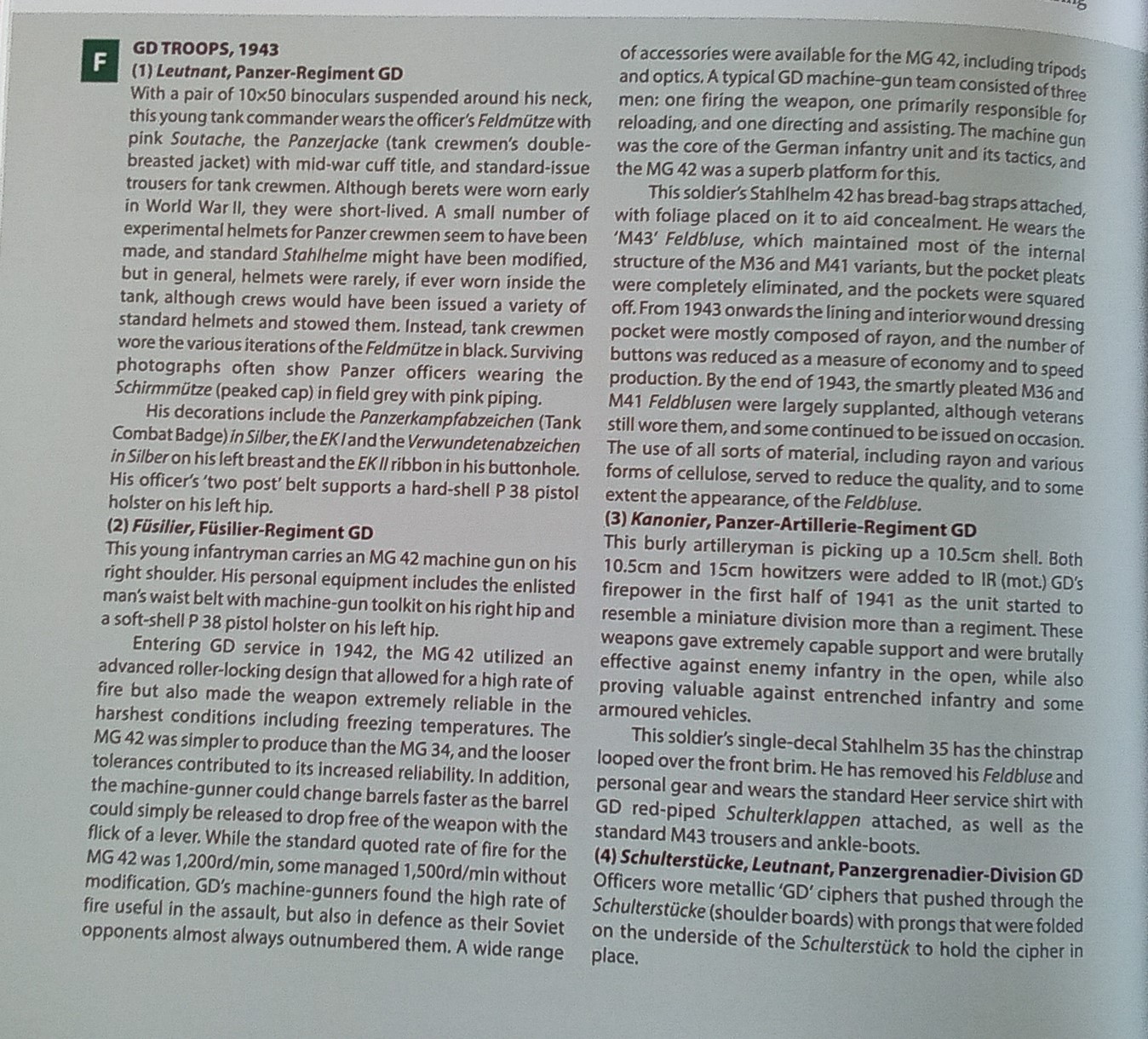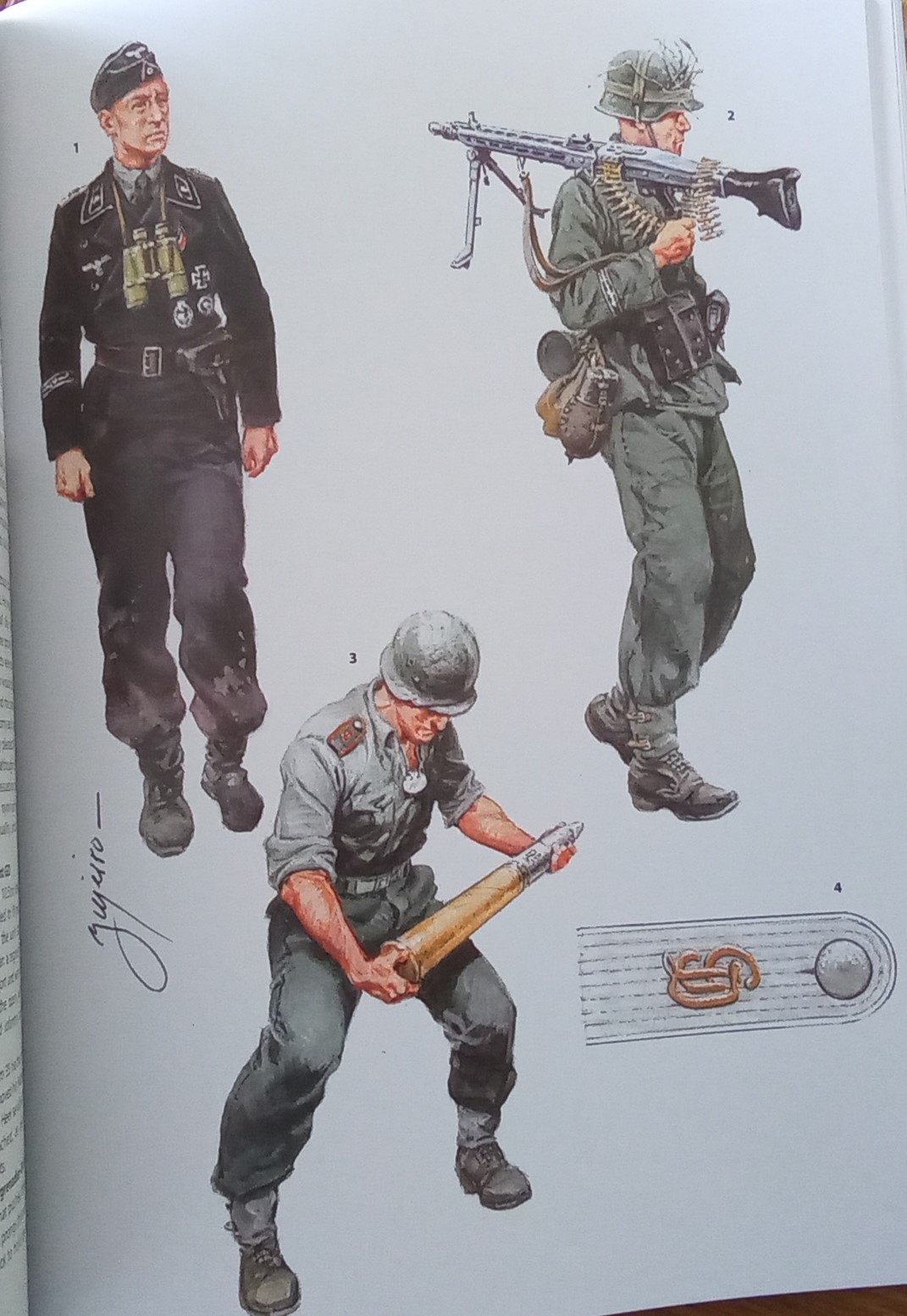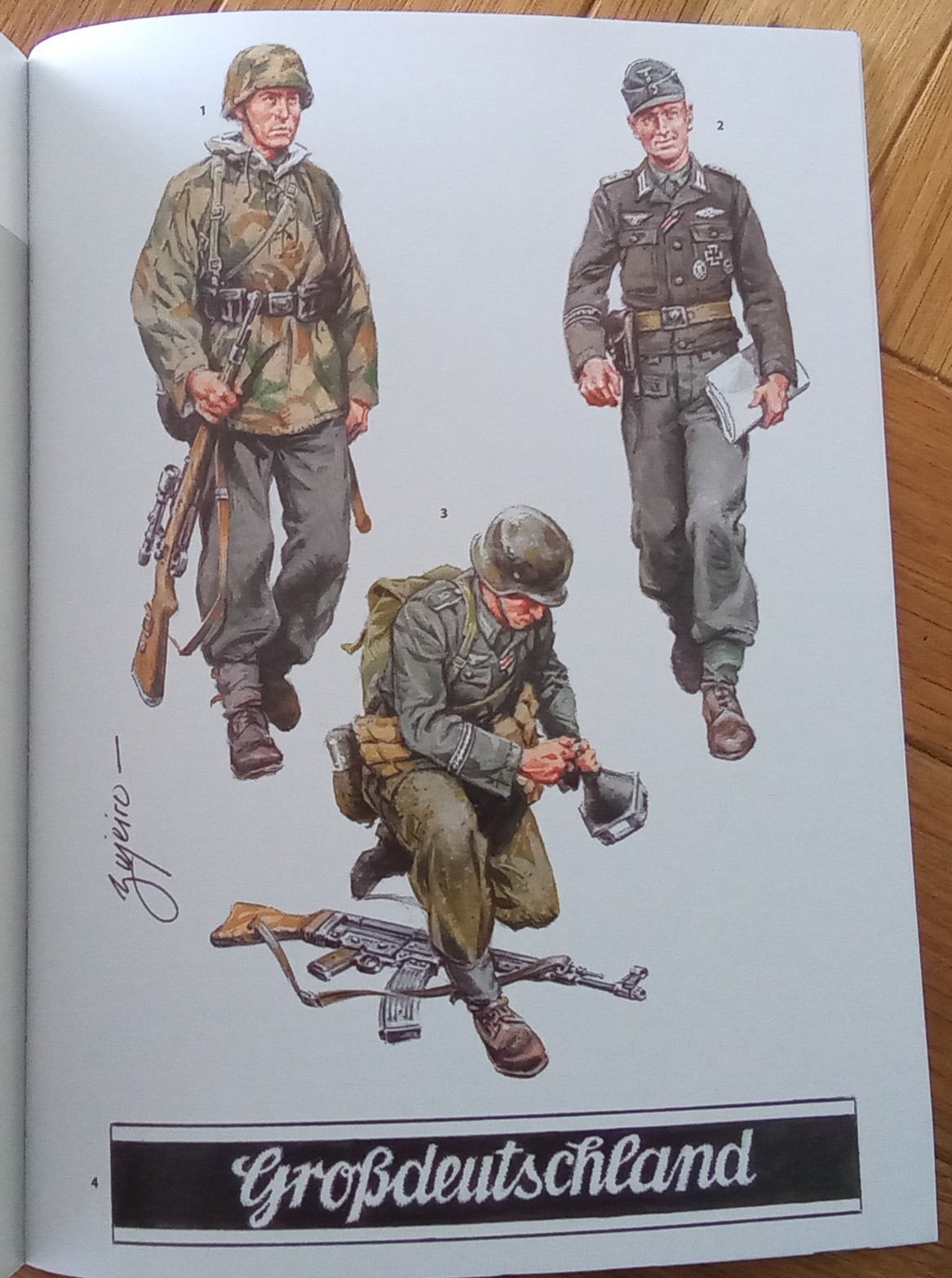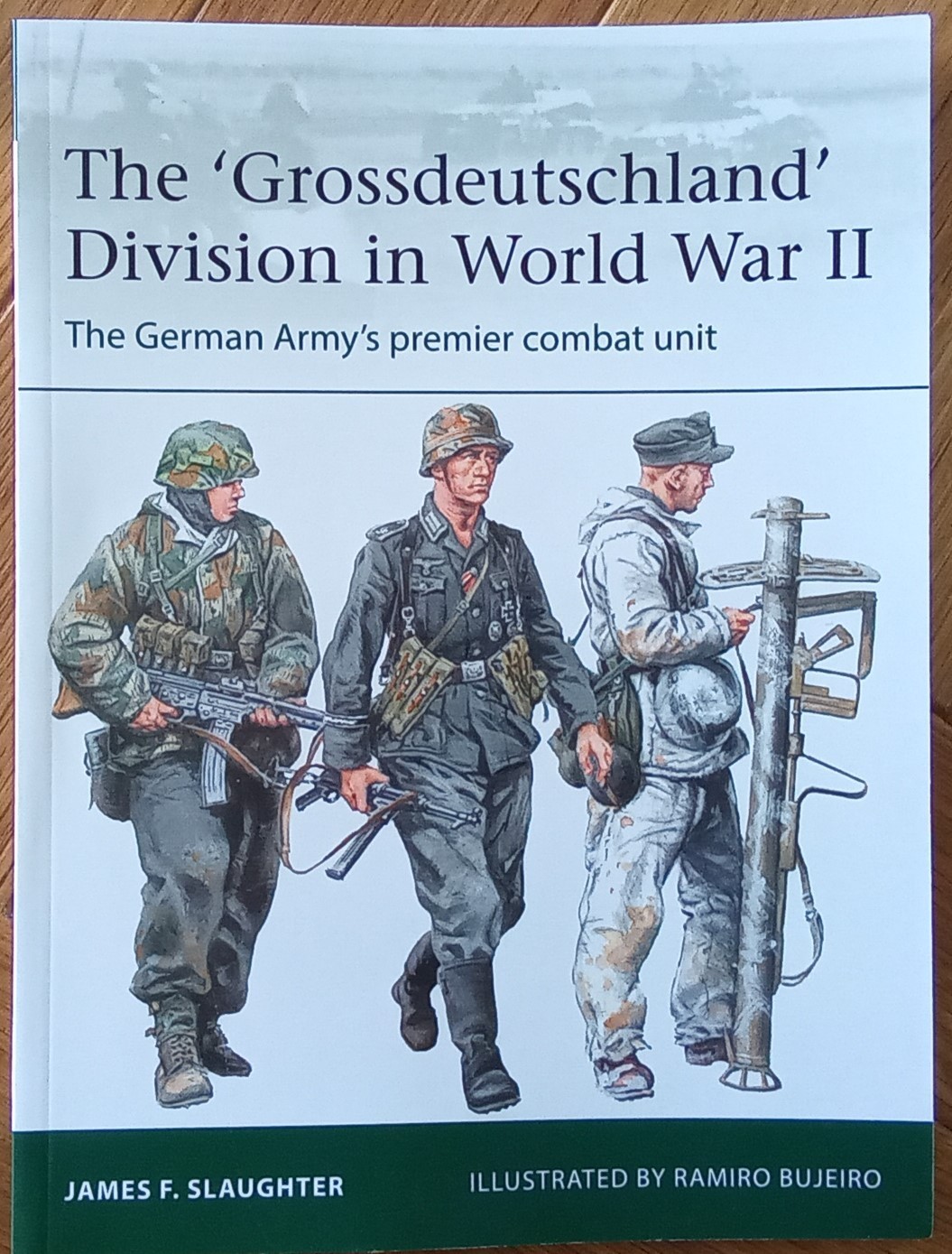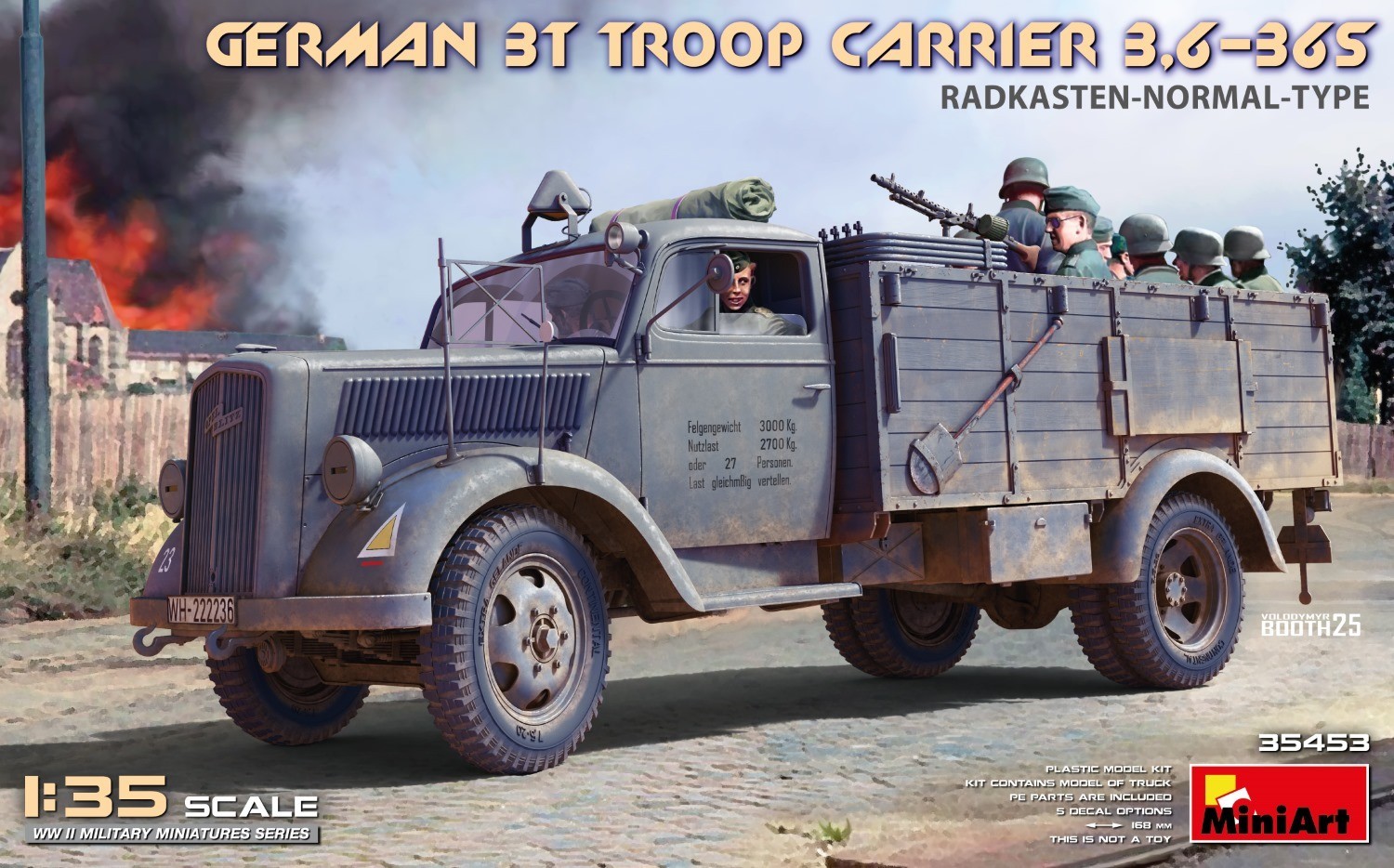some basics:
Featuring eight pages of original artwork and carefully chosen photographs depicting personalities, uniforms, insignia and personal equipment, this is the absorbing story of the German Army's elite 'fire brigade' during 1939–45. The unit began its life as an elite guard detachment; expanded to regimental size in 1939, it saw action in France in 1940 and Yugoslavia in 1941 before participating in the Axis invasion of the Soviet Union.
Reinforced to divisional status, 'Grossdeutschland' fought on the Eastern Front in 1942–44, notably at Rzhev in late 1942 and Kharkov in early 1943. Refitted and redesignated a Panzergrenadier-Division, 'Grossdeutschland' played a key role in the battle of Kursk in July 1943, before acting as the Wehrmacht's 'fire brigade' in 1943–44.
In late 1944, 'Grossdeutschland' was expanded to Panzerkorps status, with Panzergrenadier-Division 'Brandenburg' also taking the field. Further units joined the order of battle, the Führerbegleit-Brigade fighting in the Ardennes in 1944–45 before also being redesignated a division. All of these campaigns are covered in this book, which charts the evolving appearance of this elite formation over nearly six years of brutal warfare.
64 pages, 10x7inches, 8 colour artwork plates; black & white and colour photographs, illustrations from Ramiro Bujeiro, the author is James F Slaughter.
The text is broken down into the following chapters,
Introduction
Blitzkrieg 1939–40
Barbarossa 1941
Fall Blau 1942
Zitadelle 1943
In Retreat 1944–45
Conclusion
Bibliography
Index
I liked how the book covers the major events for Grossdeutschland by year, as the narrative flows in a logical sequence and is easy to follow. All the significant characters are named and identified, and given context , with their contribution to Grossdeutschland explained. At 64 pages all up, this is a quick read and a thorough summary of "the German Army's premier combat unit", a unit that was formed for ceremonial duties that evolved into "a remarkably effective combat organization that installed a strong sense of esprit de corps among its soldiers and officers until the end, and its reputation as an elite combat formation was hard earned." p.62.
The book is balanced in that the author acknowledges Grossdeutschland's storied history and combat performance, as well as its part in "the massacre of African troops in French service", page 10; and, page 14, "involved in the executions [sic] of 36 civilians on 22 April."
The colour plates remind me of the early Squadron Signal "In action" series of book, and are helpful modelling reference, with authoritative notes to accompany, explaining what is depicted. Surprisingly, there are no maps, but a minor point.
Again, at 64 pages, there is no in-depth analysis of Grossdeutschland's battles, personalities, or politics, which are well covered elsewhere, nor is this a photo album for the coffee table, it is a good introduction to the subject, well written and supported with appropriate images.
Easily recommended
